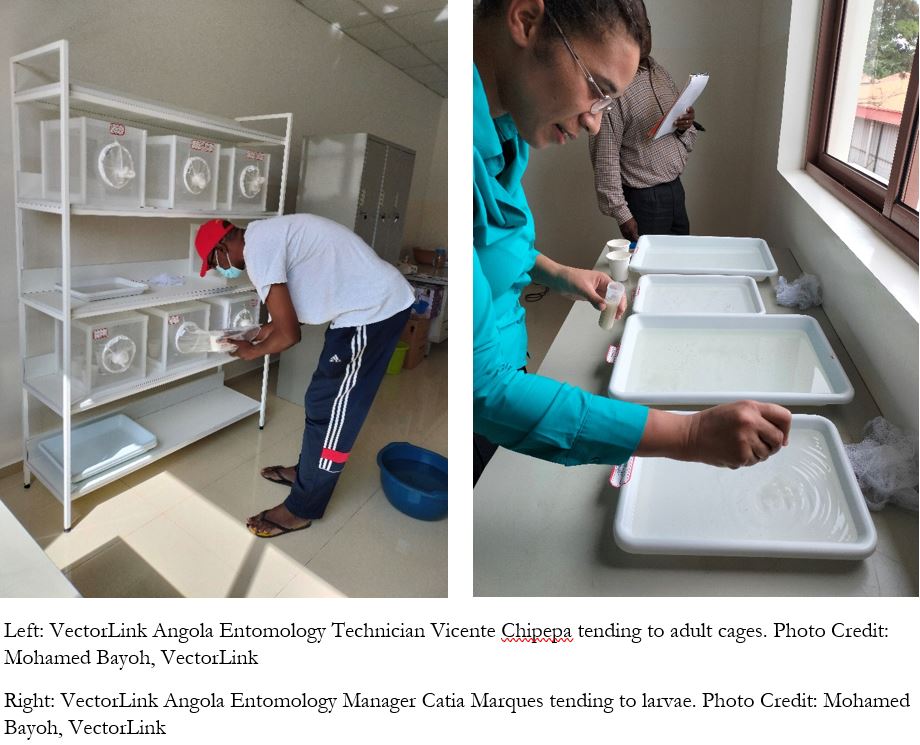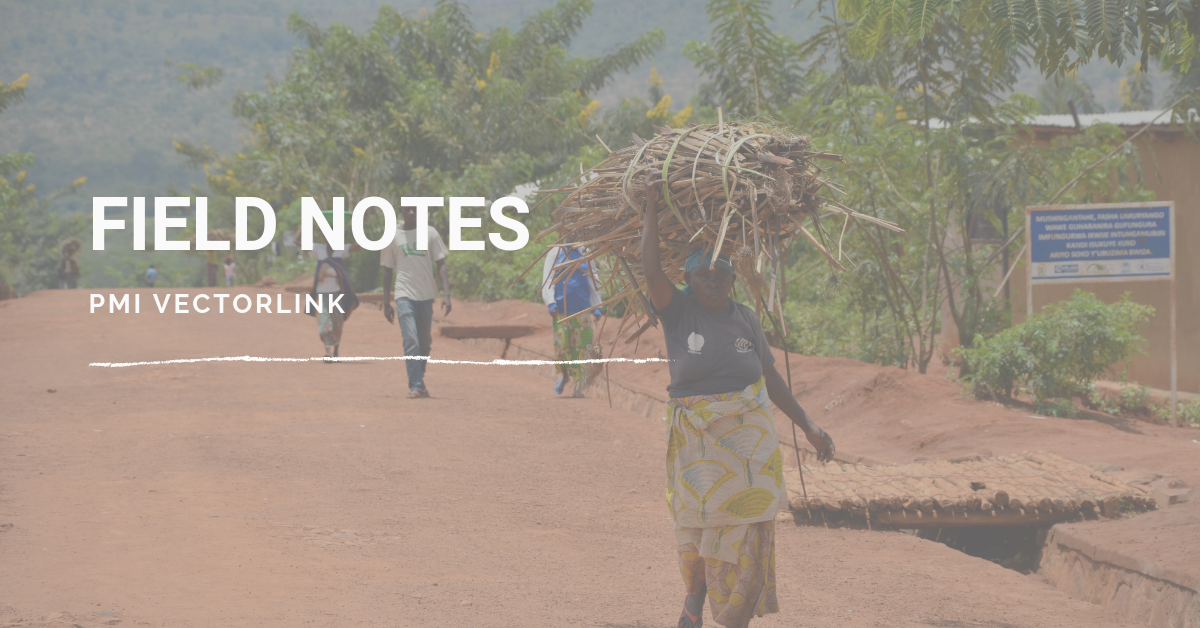 A susceptible (non-resistant) colony of malaria-transmitting mosquitoes is critical for various entomological monitoring activities, including testing insecticide residual efficacy of IRS and ITNs, and insecticide susceptibility assessments. Countries that have established and maintained a susceptible colony of mosquitos are one step closer to sustainability and being able to conduct these informative analyses themselves. For this week’s Monday Motivation, we’re looking at how VectorLink Angola is helping to move their partners toward more sustainable malaria control efforts.
A susceptible (non-resistant) colony of malaria-transmitting mosquitoes is critical for various entomological monitoring activities, including testing insecticide residual efficacy of IRS and ITNs, and insecticide susceptibility assessments. Countries that have established and maintained a susceptible colony of mosquitos are one step closer to sustainability and being able to conduct these informative analyses themselves. For this week’s Monday Motivation, we’re looking at how VectorLink Angola is helping to move their partners toward more sustainable malaria control efforts.
ITN distribution is the major vector control intervention in Angola and ITN durability studies are ongoing. The National Malaria Control Program (NMCP) recognized the need for a susceptible colony to conduct these analyses and engaged VectorLink to support their efforts.
In February of this year, the VectorLink Angola team, led by Entomology Manager Catia Marques and supported by Senior Technician Vicente Chipepa, received An. coluzzii mosquito eggs from the Vector Reference Laboratory at the National Institute for Communicable Diseases in South Africa. The initial An. coluzzii cohort allowed the team to optimize the rearing conditions (such as temperature and humidity) needed to maintain the colony at the insectary located on the Instituto de Combate e Controlo das Tripanossomíases (ICCT) premises in Luanda.
With insectary conditions achieved and normalized using An. coluzzii, the team gained confidence in maintaining a colony and a few weeks later, a batch of eggs of An. gambiae s.s. Kisumu strain from the entomology branch at CDC Atlanta were hand-carried to the country.
A few larval trays became several larval trays, and a few cages became several cages. As of April, about 350 susceptible mosquitos are being maintained by the team. The An. coluzzii colony now includes 6th generation mosquitoes while the An. gambiae colony has reached the 5th generation. Throughout the process, VectorLink Angola staff have been shadowed by ICCT staff, with the goal that ICCT will eventually maintain the colony themselves.
Both colonies will be moved to a modern insectary space currently under construction at ICCT, which is expected to be completed later this year. The hope is that the insectary will serve as the bioassay test site for ITN durability monitoring projects, chlorfenapyr insecticide susceptibility monitoring, and for any future insecticide bioassay needs. ICCT will share data generated by these tests on the reference colonies with the NMCP to help inform vector control decision-making.
Excellent work, VectorLink Angola! What a way to wrap up activities.


